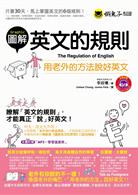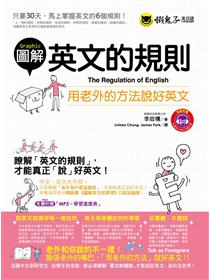華語教學最權威──國立臺灣師範大學國語教學中心 編寫開發
最符合當代華語學習趨勢的教學用書
讓中文課程走出新的未來、新的視野
系列規劃
全系列教材共六冊,為全方位訓練學生華語能力的教材。前三冊以口語訓練為主,後三冊開始進入書面語訓練。
第一冊著重在實際日常生活對話運用,第二冊開始輔以短文閱讀,第三冊則從長篇對話進入書面語及篇章的訓練,第四冊以篇章方式對書面語做更進一步的加強訓練,培養學生具備閱讀真實語料的語言實力。第五、六冊則涵蓋社會、科技、經濟、政治、文化、環境等多元議題探討,擴展學生對不同領域的語言運用。
各冊教材分別包含課本、作業本、教師手冊及漢字練習簿(第一、二冊)。
程度規劃
本系列教材適合來台學習華語學生,並適用於海外高中或大學學習華語的學生。一至六冊的程度規劃相當於CEFR的A1-C1等級或ACTFL的Novice-Superior等級。
特色
.符合現代教學潮流,結合溝通式教學和任務導向學習,培養學生使用華語的能力。
.每課開始的學習目標和課末的學習自評表,幫助學習者了解自己是否達成學習目標。
.課文緊貼日常生活真實情況,使學生在自然的語境下學習華語。
.採用新思維漢語教學詞類架構及語法說明,有效防堵學習者偏誤產生。
.語法說明包括語法功能、結構、語用、練習四個部分,輔助學習者正確地使用語言。
.課室活動提供明確的學習目標、活動或任務,透過有趣的活動練習鞏固學習。
.「文化」單元輔以真實的照片,使學習者能深入瞭解臺灣當地社會文化。
.提供線上輔助工具,協助教師課堂教學輔助及學習者之課後練習。
Introduction
This six-volume series is a comprehensive learning material that focuses on spoken language in the first three volumes and written language in the latter three volumes. Volume One aims to strengthen daily conversation and applications; Volume Two contains short essays as supplementary readings; Volume Three introduces beginning-level written language and discourse, in addition to extended dialogues. Volume Four uses discourse to solidify the learner’s written language and ability in reading authentic materials; Volumes Five and Six are arranged in topics such as society, technology, economics, politics, culture, and environment to help the learner expand their language utilisations in different domains.
Each volume includes a textbook, a student workbook, and a teacher’s manual. In addition, Volume One and Two include a practice book for characters.
Level of Students
A Course in Contemporary Chinese 《當代中文課程》 is suitable for learners of Chinese in Taiwan, as well as for high school or college level Chinese language courses overseas. Volumes One to Six cover levels A1 to B2 in the CEFR, or Novice to Advanced levels in ACTFL Guidelines
Overview
The series adopts communicative language teaching and task-based learning to boost the learner’s Chinese ability.
Each lesson has learning objectives and self-evaluation to give the learner a clear record of tasks completed.
Lessons are authentic daily situations to help the learner learn in natural contexts.
Lexical items and syntactic structures are presented and explained in functional, not structural, perspectives.
Syntactic, i.e. grammatical, explanation includes functions, structures, pragmatics, and drills to guide the learner to proper usage.
Classroom activities have specific learning objectives, activities, or tasks to help fortify learning while having fun.
The “Bits of Chinese Culture” section of the lesson has authentic photographs to give the learner a deeper look at local Taiwanese culture.
Online access provides supplementary materials for teachers & students.
延伸閱讀:
《101個教中文的實用妙點子》
《漢字365:每日一字》
《華語情境圖畫詞典》
作者簡介:
國立臺灣師範大學國語教學中心
國立臺灣師範大學國語教學中心成立於1956年,隸屬於國立臺灣師範大學,是臺灣歷史最悠久、規模最完備、教學最有成效的華語文教學機構。學員來自全世界各地,許多漢學界知名學者及政經界名人都曾在此就讀,在國際間享譽盛名。
The Mandarin Training Center (MTC) at NTNU
The Mandarin Training Center (MTC) is founded in 1956. The MTC, a subsidiary of National Taiwan Normal University (NTNU), is the largest and oldest institution dedicated to teaching Chinese as a second language in Taiwan. The center has well-equipped facilities and is internationally renowned for its high teaching quality. MTC’s students come from all over the world, and many renowned sinology scholars and important figures in the politics and financial are its alumni.
各界推薦
特別收錄 / 編輯的話:
From the Editor's Desk
Finally, after more than two years, volume one of our six-volume project is seeing the light of day. The language used in A Course in Contemporary Chinese is up to date, and though there persists a deep ‘generation gap’ between it and my own brand of Chinese, this is as it should be. In addition to myself, our project team has consisted of 18 veteran MTC teachers and the entire staff of the MTC Section of Instructional Materials, plus the MTC Deputy Director.
The field of L2 Chinese in Taiwan seems to have adopted the world-famous 'one child policy'. The complete set of currently used textbooks was born a generation ago, and until now has been without predecessor. We are happy to fill this vacancy, and with the title ‘number two’, yet we also aspire to have it be number two in name alone. After a generation, we present a slightly disciplined contemporary language as observed in Taiwan, we employ Hanyu Pinyin without having to justify it cautiously and timidly, we are proud to present a brand-new system of Chinese parts of speech that will hopefully eliminate many instances of error, we have devised two kinds of exercises in our series, one basically structural and the other entirely task-based, each serving its own intended function, and finally we have included in each lesson a special aspect of Chinese culture. Moreover, all this is done in full color, the first time ever in the field of L2 Chinese in Taiwan. The settings for our current series is in Taipei, Taiwan, with events taking place near the National Taiwan Normal University. The six volumes progress from basic colloquial to semi-formal and finally to authentic conversations or narratives. The glossary in vocabulary and grammar is in basically semi-literal English, not free translation, as we wish to guide the readers/learners along the Chinese 'ways of thinking', but rest assured that no pidgin English has been used.
I am a functional, not structural, linguist, and users of our new textbooks will find our approaches and explanations more down to earth. Both teachers and learners will find that the content resonates with their own experiences and feelings. Rote learning plays but a tiny part of our learning experiences. In a functional frame, the role of the speaker is often seen as prominent. This is natural, as numerous adverbs in Chinese, as they are traditionally referred to, do not in fact modify verb phrases at all. They relate to the speaker.
We, the field of Chinese as a second language, know a lot about how to teach, especially when it comes to Chinese characters. Most L2 Chinese teachers world-wide are ethnically Chinese, and teach characters just as they were taught in childhood. Truth is, we know next to nothing how adult students/learners actually learn characters, and other elements of the Chinese language. While we have nothing new in this series of textbooks that contributes to the teaching of Chinese characters, I tried to tightly integrate teaching and learning through our presentation of vocabulary items and grammatical structures. Underneath such methodologies is my personal conviction, and at times both instructors' and learners' patience is requested. I welcome communication with all users of our new textbooks, whether instructors or students/learners.
Shou-hsinTeng
特別收錄 / 編輯的話:From the Editor's Desk
Finally, after more than two years, volume one of our six-volume project is seeing the light of day. The language used in A Course in Contemporary Chinese is up to date, and though there persists a deep ‘generation gap’ between it and my own brand of Chinese, this is as it should be. In addition to myself, our project team has consisted of 18 veteran MTC teachers and the entire staff of the MTC Section of Instructional Materials, plus the MTC Deputy...
作者序
師範大學國語教學中心成立於 1956 年,是臺灣歷史最悠久、規模最完備、教學最有成效的華語文教學機構。每年培育三千名以上的外籍學生,學生來自世界一百二十餘國,至今累計人數已達五萬餘人,在國際間享譽盛名。
本中心自 1967 年開始編製教材,迄今共計編寫五十餘本教材,在華語教學界具有舉足輕重之地位。而現今使用之主教材已有十五年之久,不少學生及教師認為現行教材內容需要更新,應新編配合時代需求的新教材。因此,本中心因應外在環境變遷、教學法及教學媒體的創新與進步,籌畫編寫《當代中文課程》6 冊,以符合海內外華語教學的需求,並強化臺灣華語文教學教材之品牌。
為了讓理論與實務結合,並落實發揚華語文教學的精神與理念,本中心邀請了華語教學界的大師—鄧守信教授擔任主編,率領 18 位極富教學經驗的第一線老師進行內容編寫,並由張莉萍副研究員、張黛琪老師及教材研發組成員蔡如珮、張雯雯擔任執行編輯,進行了這項《當代中文課程》的編寫計畫。
這是本中心歷經數十年深厚教學經驗後再次開發的全新主教材,更為了確保品質,特別慎重;我們很榮幸地邀請到美國的Claudia Ross教授、白建華教授及陳雅芬教授,擔任顧問,也邀請了臺灣的葉德明教授、美國的姚道中教授及大陸的劉珣教授,擔任審查委員,並由本校英語系李櫻教授和畢永峨教授分別協助生詞和語法的翻譯。此教材在本中心及臺灣其他語言中心,進行了一年多的試用;經過顧問的悉心指導、審查委員的仔細批閱,並參考了老師及學生提出的寶貴意見,再由編寫老師做了多次修改,才將版本定稿。對於所有在編寫過程中,努力不懈的編輯團隊、給予指教的教授、配合試用的老師及學生,我們都要致上最高的謝意。
在此也特別感謝聯經出版事業股份有限公司,願意投注最大的心力,以專業的製作出版能力,協助我們將這套教材以最佳品質問世。
我們希望,《當代中文課程》不只提供學生們一套實用有效的教材,亦讓老師得到愉快充實的教學經驗。歡迎老師在使用後,給予我們更多的指教與建議,讓我們不斷進步,也才能為海內外的華語教學,做更多更好的貢獻。
國立臺灣師範大學國語教學中心主任 陳浩然
Foreword
The Mandarin Training Center (MTC) at National Taiwan Normal University (NTNU) was established in 1956, and is the oldest, most comprehensive, and most pedagogically effective educational institute of its kind in Taiwan. Every year over 3,000 international students are trained at MTC, and to the present day over 50,000 students representing more than 120 countries have walked through its doors, solidifying international renown.
MTC started producing teaching material in 1967, and has since completed over 50 textbooks, making it a frontrunner in the field of teaching Chinese as a second language. As the core books have been in circulation for 15 years already, many students and teachers agree that updates are in order, and that new materials should be made to meet the modern demand. Changes in the social landscape, improved teaching methods, and innovations in educational media are what prompted the production of MTC’s six-volume series, A Course in Contemporary Chinese. The project responds to Chinese teaching needs both at home and abroad, and bolsters Taiwan’s brand of teaching material for Chinese as a second language.
With the goal of integrating theory and practice, and carrying forward the spirit of teaching Chinese as a second language, MTC petitioned one of the field’s most esteemed professors, Shou-Hsin Teng, to serve as chief editor. A Course in Contemporary Chinese has been compiled and edited under his leadership, together with the help of 18 seasoned Chinese teachers and the following four executive editors: Associate Research Fellow Liping Chang, Tai-chi Chang, and Ru-pei Cai and Wen-wen Chang of the MTC teaching material development division.
MTC is presenting this brand new core material after half a century’s worth of educational experience, and we have taken extra care to ensure it is of uncompromised quality. We were delighted to have American professors Claudia Ross, Jianhua Bai , and Yea-fen Chen act as consultants, Professor Teh-Ming Yeh from Taiwan, Professor Tao-chung Yao from the U.S., and Professor Xun Liu from China on the review committee, and professors Ying Cherry Li and Yung-O Biq of NTNU’s English department help with the respective translation of vocabulary and grammar points. The material was first trialed at MTC and other language centers around Taiwan for a year. The current version underwent numerous drafts, and materialized under the careful guidance of the consultants, a sedulous reading from the review committee, and feedback from teachers and students. As for the editorial process, we owe the greatest thanks to the indefatigable editorial team, the professors and their invaluable input, and the teachers and students who were willing to trial the book.
An additional and special thanks is due to Linking Publishing Company, who put forth utmost effort and professionalism in publishing this set of teaching material, allowing us to deliver a publication of superior quality.
It is our hope that A Course in Contemporary Chinese is not merely a practical set of teaching materials for students, but also enriching for teachers and the entire teaching experience. We welcome comments from instructors who have put the books into practice so that we can continue improving the material. Only then can we keep furthering our contribution to the field of teaching Chinese as a second language, both in Taiwan and abroad.
Hao Jan Chen
Director of the Mandarin Training Center
National Taiwan Normal University
師範大學國語教學中心成立於 1956 年,是臺灣歷史最悠久、規模最完備、教學最有成效的華語文教學機構。每年培育三千名以上的外籍學生,學生來自世界一百二十餘國,至今累計人數已達五萬餘人,在國際間享譽盛名。
本中心自 1967 年開始編製教材,迄今共計編寫五十餘本教材,在華語教學界具有舉足輕重之地位。而現今使用之主教材已有十五年之久,不少學生及教師認為現行教材內容需要更新,應新編配合時代需求的新教材。因此,本中心因應外在環境變遷、教學法及教學媒體的創新與進步,籌畫編寫《當代中文課程》6 冊,以符合海內外華語教學的...
目錄
前言 Foreword
主編的話 From the Editor’s Desk
漢語介紹 An Introduction to the Chinese Language
各課重點 Highlights of Lessons
詞類表 Parts of speech in Chinese
課堂用語 Classroom Phrases
人物介紹 Introduction to Characters
第一課 歡迎你來臺灣!
Lesson 1 Welcome to Taiwan!
第二課 我的家人
Lesson 2 My Family
第三課 週末做什麼?
Lesson 3 What Are You Doing Over the Weekend?
第四課 請問一共多少錢?
Lesson 4 Excuse me. How Much Does That Cost in Total?
第五課 牛肉麵真好吃
Lesson 5 Beef Noodles Are Really Delicious
第六課 他們學校在山上
Lesson 6 Their School Is Up in the Mountains
第七課 早上九點去KTV
Lesson 7 Going to KTV at 9 O’clock in the Morning
第八課 坐火車去臺南
Lesson 8 Taking a Train to Tainan
第九課 放假去哪裡玩?
Lesson 9 Where Will You Go for the Holidays?
第十課 臺灣的水果很好吃
Lesson 10 The Fruit in Taiwan Tastes Really Good
第十一課 我要租房子
Lesson 11 I Would Like to Rent a Place
第十二課 你在臺灣學多久的中文?
Lesson 12 How Long Will You Be Studying Chinese in Taiwan?
第十三課 生日快樂
Lesson 13 Happy Birthday
第十四課 天氣這麼冷!
Lesson 14 It’s So Cold!
第十五課 我很不舒服
Lesson 15 I Don’t Feel Well
附錄
生詞索引 Vocabulary Index (Chinese-English)
生詞索引 Vocabulary Index (English –Chinese)
簡體字課文參考
前言 Foreword
主編的話 From the Editor’s Desk
漢語介紹 An Introduction to the Chinese Language
各課重點 Highlights of Lessons
詞類表 Parts of speech in Chinese
課堂用語 Classroom Phrases
人物介紹 Introduction to Characters
第一課 歡迎你來臺灣!
Lesson 1 Welcome to Taiwan!
第二課 我的家人
Lesson 2 My Family
第三課 週末做什麼?
Lesson 3 What Are You Doing Over the Weekend?
第四課 請問一共多少錢?
Lesson 4 Excuse me. How Much Does That Cost in Total?
第五課 牛肉麵真好吃
Less...
購物須知
退換貨說明:
會員均享有10天的商品猶豫期(含例假日)。若您欲辦理退換貨,請於取得該商品10日內寄回。
辦理退換貨時,請保持商品全新狀態與完整包裝(商品本身、贈品、贈票、附件、內外包裝、保證書、隨貨文件等)一併寄回。若退回商品無法回復原狀者,可能影響退換貨權利之行使或須負擔部分費用。
訂購本商品前請務必詳閱退換貨原則。


























































































































